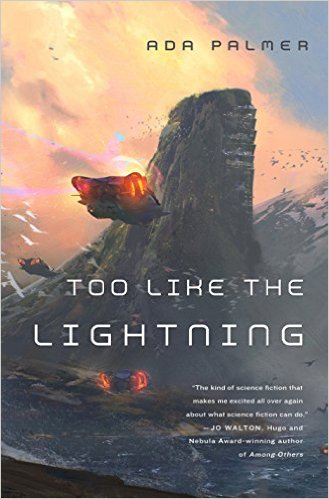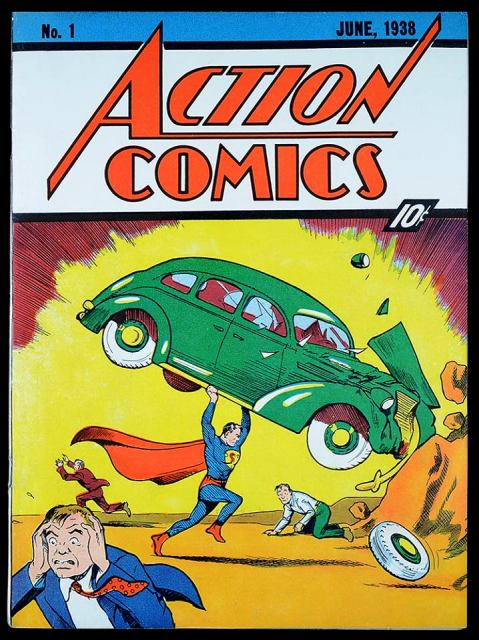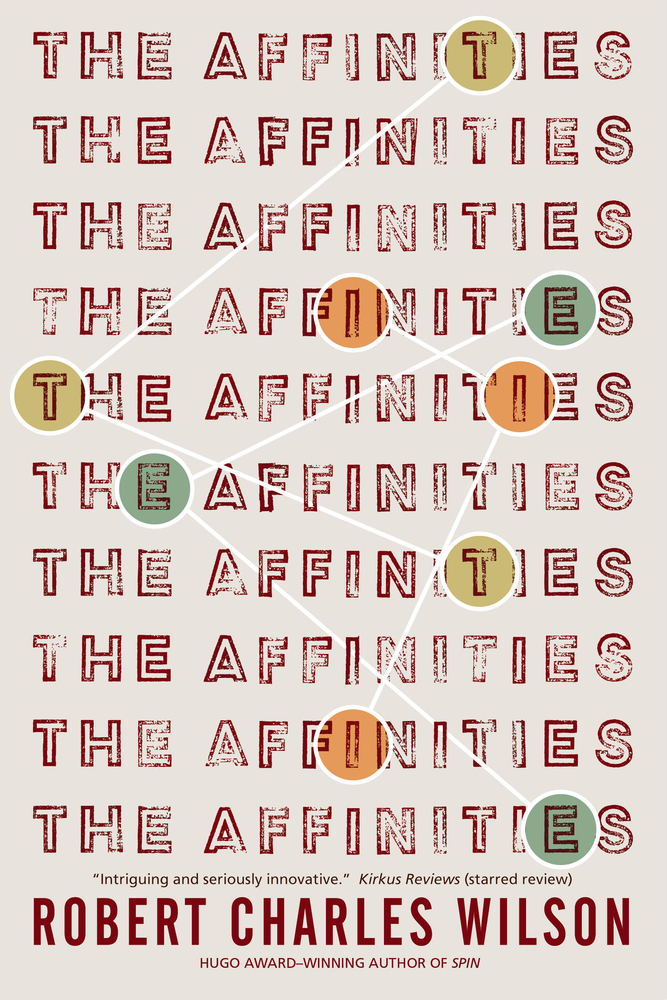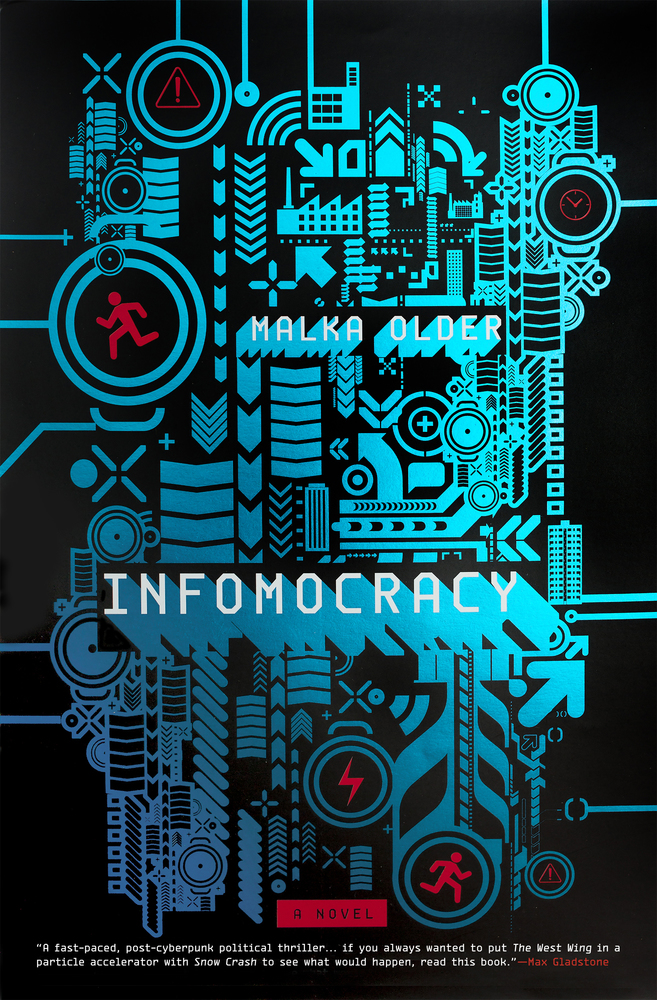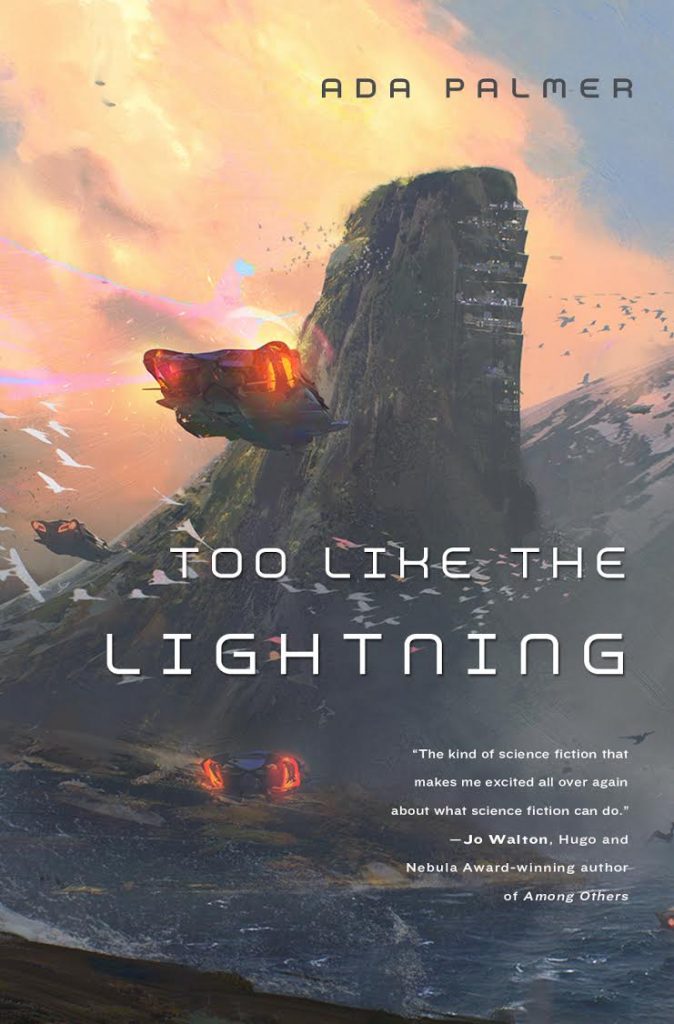(1) THE UGLY SPACEMAN. Adam Roberts tells New Scientist readers, “If I were a Martian, I’d start running now”.
Exploration has never been neutral, and it’s hard to believe that future exploration of the cosmos will be different. So: doesn’t SF have a duty to flavour its fantasies of boldly going with a smidgen of ideological honesty? “Exploration Fiction” is, after all, better placed than any other kind of literature to explore exploration itself.
(2) IN VINO VERITAS. The Dandelion Wine Fine Arts Festival takes place in Waukegan on June 3. The Chicago Tribune has the story —
Ray Bradbury wrote about the happiness machine in his iconic novel “Dandelion Wine,” published in 1957 and reminiscent of his early boyhood days exploring the ravines of Waukegan.
Sixty years later, the annual Dandelion Wine Fine Arts Festival in Bowen Park offers participants the chance to create pictures of their own “happiness machines” for the community art project….
“The festival is an important way to honor and pay tribute to Ray Bradbury and it’s a great time for everybody to finally get over winter — spring’s here — and it kicks off summer,” Rohrer said.
Bradbury served as the festival’s honorary chairman until his death in 2012. The festival tradition ensures his legacy will live forever in Waukegan. Typically more than 1,000 adults and children come to the festival each year, Rohrer said.
John King Tarpinian says of dandelion wine, “I am told it tastes like grass.”
(3) LITERARY TOURIST. Laura J. Miller’s “Dark Futures” adapts the age-old literature vs. science fiction dichotomy as a vehicle to administer a kick to Donald Trump from a different angle. However, that still forces her to discuss actual writers and books, a discussion she ends with this malediction:
Science fiction has always promised its readers fictional wonders they can’t get in other genres, stories in which the stakes are high and the ideas are heady. What’s surprising is not that literary novelists are increasingly taking up science fiction’s tools, but that more of them didn’t try it sooner. Now, as the present crumbles away into a future that evolves more quickly than most of us can track, it seems impossible to write about contemporary life without writing science fiction. But the secret to doing it well doesn’t lie in suspenseful chase scenes, weighty messages or mind-blowing existential puzzles. That stuff can be fun, but it can also feel pretty thin without something that’s supposed to be a specialty of literary novelists: the fullest appreciation of humanity in its infinite variety and intricacy. Do justice to that, and the wonders will take care of themselves.
The article enraged a whole handful of sf writers, quoted by Jason Sanford in his rebuttal post, “Laura Miller, or what happens when a literary critic loathes genre fiction but knows that’s where the best stories are?”
So. Much. Fail. In. One. Essay. And before you believe I’m biased because I’m one of those lowly SF authors who need step aside for my literary betters, check out the reaction of other authors to Miller’s words:
- English author Joanne Harris, known for many award-winning novels including Chocolat, said she wanted to flip her table at Miller’s comment that the “specialty of literary novelists (is) the fullest appreciation of humanity in its infinite variety and intricacy.”
- Critic and author Damien Walter said “It’s a bad essay, more for not recognising that fantasy, imagination and myth existed as part of literature before the SF genre was born.“
- After reading the essay SF author Alex Acks added “Apparently none of us can write a character to save our lives.“
- Author Felicia C. Sullivan said about the essay that “Lit fiction authors are often the most irritating. SF is hard and brilliant (with a canon) and isn’t something to which a writer panders.“
Part of the problem with the essay, beyond Miller’s actual condescending words, is that she overlooks the ability of SF authors to write at the level of the authors she’s praising. She grudgingly gives William Gibson and Karen Joy Fowler minor props but ignores the stylistic and literary ability of SF masters like Samuel R. Delany, Ursula K. Le Guin, Gene Wolfe, N. K. Jemisin, Connie Willis and so many others.
(4) TRAINING WHEELS. The Telegraph explains “Why Harry Potter fans will like the new Bank of Scotland £10 note”.
An image of the Glenfinnan Viaduct – part of the West Highland Railway Line that was made famous by the Harry Potter movies – will remain on the reverse of the design, but with the addition of a steam locomotive hauling a heritage tourist train.
(5) BINDING PLANS. Provided they don’t let the Doctor himself navigate, “A TARDIS-inspired shared library is coming to Woodbridge” this weekend.
Fans of Doctor Who will have a new destination to check out in Detroit. On Saturday, June 3 at noon, a TARDIS-inspired shared library will be installed at the corner of Vermont and Warren.
Dan Zemke has been a fan of Doctor Who and wanted to build a TARDIS (a Police Box time machine that stands for Time and Relative Dimension in Space). It can transport a person anywhere in time and space, kind of like a great book. Inspired by his brother Jon, who rehabs houses in Woodbridge and had a large mural painted on one prominent home last year, Dan decided to create a practical use for it and build it into a library. With the help of his dad, the time machine/library is now ready to be installed.
It’s big — 10 feet tall and likely weighs a ton — and they’re seeking book donations since it can hold so many. Zemke says he’d like to include a large book where people can write and share their own stories.
The public is invited to the installation at noon on June 3. And if you have some books to contribute, feel free to bring them.
(6) FOURTH STAGE LENSMAN. Joe Vasicek experiences “What it’s like to write after a life interruption”. His post takes readers from Stage Zero through Four.
Stage 0: Procrastination
I guess I should write — but first, I should check my email. Also, there’s a couple of publishing tasks I need to do. I’m also kind of hungry, come to think of it.
Wow, those publishing tasks took a lot longer than I thought they would. I could start writing now, but I’d only have half an hour, and what can I possibly get done in that time? Maybe I should just relax for a bit and play this addictive online game…
Stage 1: BIC HOC
All right, no more excuses. It’s butt in chair, hands on keyboard time!
What’s wrong with my chair? Did someone put a magnet in it? It seems like my butt gets repulsed every time I try to sit down in it. I can knock off a couple of paragraphs, but then I have to get up and pace for a while. Or do some chores. Or–
No! I’ve got to focus. But man, it feels like I’m pulling teeth. The words just aren’t coming. It’s been more than an hour, and how much have I written? Holy crap, that’s pathetic.
Well, it’s the end of the day, and I only managed a few hundred words, but that’s better than nothing I guess.
(7) BACK FROM THE SHADOWS. Carl Slaughter observes:
NBC cancelled the Constantine live action series after only one season. CW’s Arrow series brought the Constantine character in for 2 episodes. Now CW is giving the Alan Moore-created comic book character another crack at a television series through animation. Constantine actor Matt Ryan will return to voice the animated version. Here’s a history of Constantine.
(8) BERKELEY OBIT. Makeup artist Ron Dursley Berkeley (1931-2017) died May 9.
His 50-year career included working on George Pal’s The Time Machine (1960), The Seven Faces of Dr. Lao, and Star Trek. He won one Primetime Emmy, and was nominated four times altogether.
His non-genre work spanned The Manchurian Candidate, Anne of a Thousand Days, and Who’s Afraid of Virginia Woolf?
(9) COMIC SECTION. John King Tarpinian recommends the librarian humor in today’s Farcus.
(10) ADA PALMER. In May 2017, Ada Palmer came out with Seven Surrenders, the second in her Terra Ignota series. The Will to Battle comes out in December 2017.
In a future of near-instantaneous global travel, of abundant provision for the needs of all, a future in which no one living can remember an actual war — a long era of stability threatens to come to an abrupt end.
For known only to a few, the leaders of the great Hives, nations without fixed locations, have long conspired to keep the world stable, at the cost of just a little blood. A few secret murders, mathematically planned. So that no faction can ever dominate, and the balance holds. And yet the balance is beginning to give way.
Mycroft Canner, convict, sentenced to wander the globe in service to all, knows more about this conspiracy the than he can ever admit. Carlyle Foster, counselor, sensayer, has secrets as well, and they burden Carlyle beyond description. And both Mycroft and Carlyle are privy to the greatest secret of all: Bridger, the child who can bring inanimate objects to life.
(11) MARVEL INVADES GOTHAM. You can find Marvel at BookCon 2017 starting tomorrow:
This weekend, Marvel returns to New York’s Javits Center for BookCon 2017, spotlighting how Marvel continues to branch out and bridge the divide between pop culture and book buyers, librarians, and book fans of all ages.
This Thursday, June 1st, join novelists Jason Reynolds (Miles Morales: Spider-Man), R. L. Stine (Man-Thing), and Margaret Stohl (Mighty Captain Marvel) as they are joined by some of the biggest names from the House of Ideas — as well as some surprise Mighty Marvel Guests! These blockbuster creators will discuss bringing their prose skills to Marvel’s graphic fiction, bringing Marvel characters into the prose world, and the exciting universal appeal of Marvel’s new wave of graphic novels.
Can’t make it to the convention? Follow along on Marvel.com and @Marvel on Twitter.
(12) SINCEREST FORM OF FLATTERY. The passing of actor Roger Moore prompted Dwayne Day to consider the actor’s legacy as the face of the James Bond franchise in an article for The Space Review.
Roger Moore passed away on May 23 at the age of 89. Moore, who was born in London in 1927, was best known for playing James Bond in seven movies between 1973 and 1985, more Bond movies than any other actor. Moore’s Bond appearances included the 1979 film Moonraker, the highest-grossing Bond movie until Daniel Craig rebooted the franchise in the 2000s. Moonraker is one of several Bond movies with a space theme, but the only one where James Bond travels into space.
Moonraker often tops critics’ lists of the worst Bond movie made, although it sometimes ties for that dubious honor. Like most Bond films, it recycled a lot of over-used plot devices: the megalomaniacal billionaire bent on world destruction, lame double-entendres, blatant sexism, dumb quips Bond makes upon dispatching a bad guy, the amazing coincidence that Bond happens to possess exactly the right gizmo he needs at the moment of maximum peril, and the absurdity of a “spy”with brand name recognition whom everybody recognizes the second he walks through the door. But these were the franchise’s fault, not Moore’s…
Moonraker was made because producer Cubby Broccoli saw the box office returns from Star Wars and decided that his next Bond movie should be set in space. Broccoli was shameless, but his decision paid off handsomely, with a worldwide gross of $210 million in then-year dollars. Although Moonraker frequently rates among the worst Bond movies, it made more money than any other Bond film for the next 16 years. Moore reprised the role three more times.
(13) WHEN VENUS WAS A SOGGY MESS. A Bradbury story with sound effects — radio reinvented! “THE LONG RAIN, by Ray Bradbury, sound-designed & narrated by Alexander Rogers”.
THE LONG RAIN is my personal favorite short story from Ray Bradbury’s classic body of tales, The Illustrated Man. Written in 1950, it paints a deadly and seductive image of an interminably rainy planet of Venus. Admittedly, science now shows us Venus is more of a lead oven than a drenched rainscape, but let’s not take Venus literally in this sense. I’ve always felt that planets in sci-fi are more of a mental/spiritual arena in which to place relatable, earthly characters.
Bradbury’s writing here is so poetic and so visual, I just knew a vocal narration wasn’t enough. An audiobook like this deserves a rain soundtrack, complete with soggy footsteps and storms and rivers and shimmering things. May you enjoy the sound design as well as the characters!
(14) THE DOG DAYS. Once I read John Scalzi’s opening tweet I knew it was going to be a slow news day….
Dog produced a fart of such potency that it actually woke me up. Good morning, Twitter.
— John Scalzi (@scalzi) May 30, 2017
(15) REALLY FINICKY. Mashable has a funny video: “Cute kitty devastates the crew of the Nostromo in this recut trailer of ‘Aliens'”.
The spacecraft Nostromo has an unwanted guest wreaking havoc on the crew. No, it’s not a bloodthirsty Alien… but an adorable kitten? Watch what happens in this re-imagined trailer.
[Thanks to John Hertz, JJ, Martin Morse Wooster, John King Tarpinian, and Andrew Porter for some of these stories. Title credit goes to File 770 contributing editor of the day Jack Lint.]









